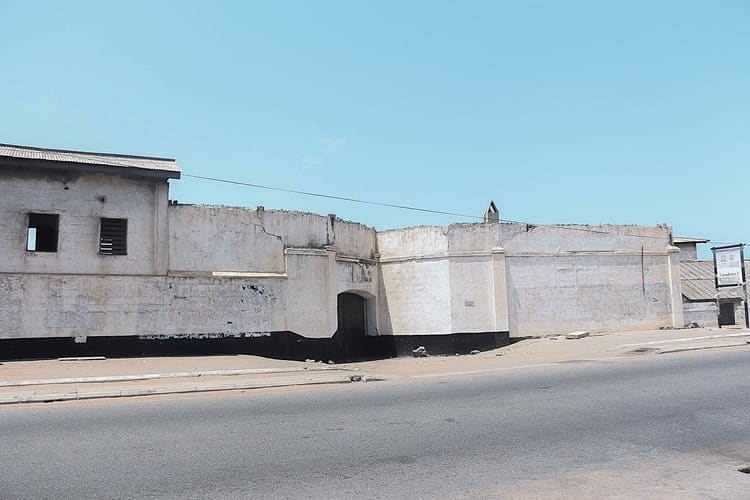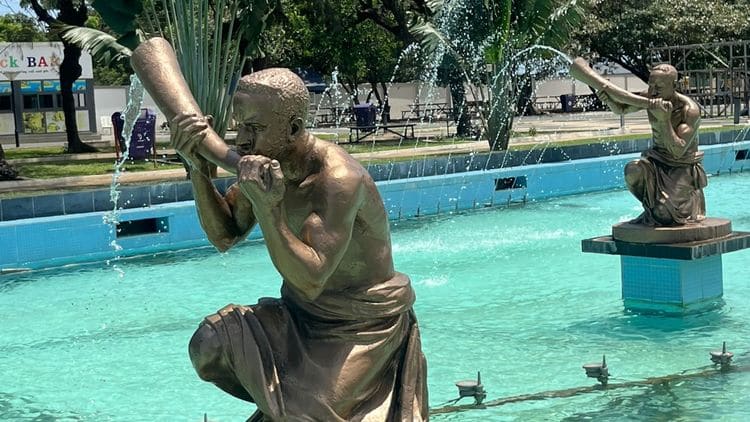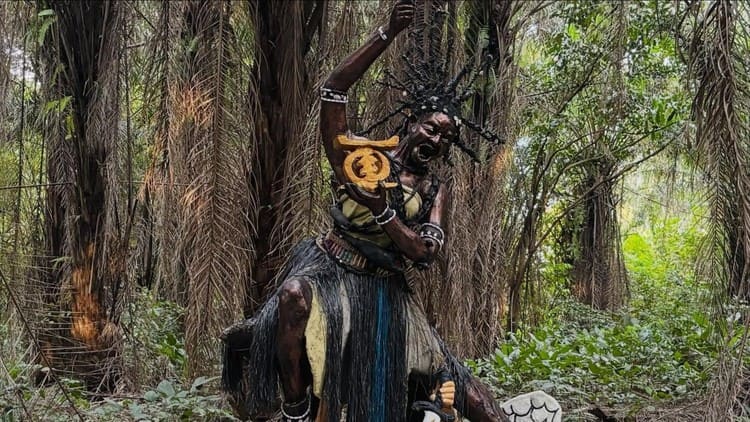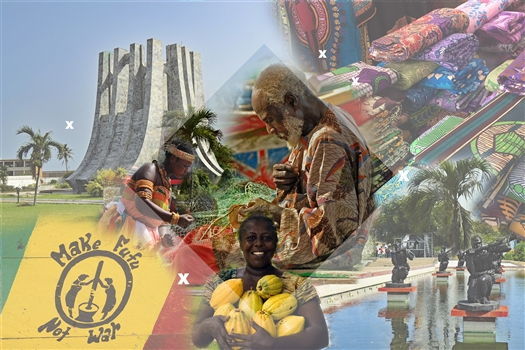Welcome to probably the most hospitable country in Africa!
Akwaaba! WELCOME TO GHANA!
Welcome to probably the most hospitable country in Africa!
It is hard to find enough words to describe everything that this beautiful land holds. Welcoming vibe, stunningly beautiful nature, bright and cheerful festivals, those smiley faces, almost ‘soul-filling rhythms’ and all those colours! Ghana is colourful not only in fashion. It brings out a wide pallet of colours in everything, be it nature, cuisine, landscapes, festivals or decorations, it makes it special on every step!
The land of diversity has something to offer for every single one of you! Ghana is often referred to as ‘Africa for beginners’, however, there are plenty of adventures to find also for those experienced ones with ‘a PhD in travelling’. Each region has its own charms and secret gems. Central, Western, Accra and Volta regions are famous for fishing activities. Volta Region will take your breath away by its incredible sceneries and natural beauty. There mountain biking, waterfalls and hiking will keep you busy for a good while, as there is so much to see and do! Serene surroundings, buzzing nightlife, international conference, dry savannah, flat sandy beaches, high mountains - all is possible in Ghana!
Ghana is often portrayed as an example of ‘future of Africa’. There are things to be proud of - the first to gain independence (in the post-war era), one of the world’s fastest-growing economies, one of very few African countries to work on democracy and so much more! Ongoing developments across the country are shaping and improving the future of Ghana every day.
As you move around the country, you’ll discover how many languages are spoken in Ghana and how many ethnic communities live side by side. It makes this country so diverse and intriguing in so many ways.
Ghanaians speak English to a high standard, which makes it so much easier for English-speaking visitors to get around. With all the possibilities to find adventures or getaways, Ghana still is not one of those destinations affected by mass tourism. It gives you so much space and a chance to experience everything about it to the core.
Ghana has an abundance of things to do and unforgettable experiences to share with you. Come and see it with your own eyes!
Culture
Cultural diversity is mind-blowing in Ghana. History, culture and modern lifestyle have worked together masterfully. You can go from busy nightlife downtown in Accra to rural villages in the North, see the traditions that still date back to the ancient Kingdom of Asante or experience more Islamic vibe in Larabanga and Bole.
It is fascinating to see all these ethnic groups sharing one land in peace. There is one common feature that is common for all - festivals. There are at least 70 annual festivals happening all across Ghana every year in towns and villages. These cultural, traditional, colourful events take a massive part in Ghanaian lives. Even personal events, like funerals, weddings or name-giving ceremonies hold this eventful atmosphere.
To explore the cultural side of Ghana, visitors often start with Accra - a historical capital, easy to navigate. It holds various striking landmarks, buzzing nightlife and shopping experience. For example, Jamestown is a spectacular mix of architecture that dates back for centuries with more modern landmarks. From Osu Castle built in the 17thh century to the more modern Independence Arch or Nkrumah Mausoleum. Again, diversity is what you will notice everywhere you go.
Festivals
In Ghana festivals - it is part of celebration of life. Ghanaians have learned to celebrate every stage of life and truly appreciate the good things in their lives.
Every festival is a special occasion - be it marking end of traditional year or to appreciate and celebrate events in past and present, initiation into womanhood or showcasing traditional crafts. Festivities also have a spiritual meaning. It can be deeply felt through songs, dances and performed rituals - it is never ‘just a party’. Some of the religious festivities can be held in private. Most of the biggest festivals go on for a week. During this time everything is ‘on a display’ - art, clothing and state regalia - everything is about the celebration.
Each tribe, ethnic community and region practise their own customs and traditions, therefore festivals may be celebrated differently or even at different times. Even though at first all the festivities may seem similar, we assure they are not. For many of ethnic groups, these festivals work as a calendar to mark the beginning or the end of a season. Most festive events in south include durbar of chiefs and a royal procession through the major streets. Chiefs and Queen Mothers are being carried in palanquins with large, beautifully decorated umbrellas.
Make time to see one of these beautiful celebrations of life in person! Festivals are one of few places and occasions where you can see the true Ghanaian culture and tradition in all its splendour.
Music and Dance
In Ghana music is one of the pillars of life. West African music scene is very vibrant. However, Ghana has been one of the leading music innovators for years in terms of modern style fusion with traditional sounds. Music and dance are something inseparable and are a crucial part of Ghanaian every day life - it is part of the art of ‘celebrating life’. Music is played and dances performed on special occasions as a social ritual to lift spirit, tell the story or express historical significance. Regionally south is more drum-based and north is more based on fiddles and xylophones.
Rhythm and drums are at the heart of Ghanaian culture and where is rhythm, there is the dance that goes with it. With the variety of ethnical groups in Ghana, there is a vast variety of dance styles too. To name only a few Adzogbo, Agbadza, Gonja or Bmaya - all of those differ in character and movements and each an every one is unique in its own way. What is common to all of them? The captivating and hypnotically satisfying drumming sounds.
Arts and Crafts
Ghana is a paradise of creative minds, art lovers and creators. With the abundance of materials available, no wonder they are so creative and skilled in so many crafts. Ghanaians are masterfully skilled in crafts that range from wood carvings to textiles, brass works, sculptures to jewellery. You art creators almost in every village, town and markets are great places to find art.
Art in Ghana serves a more meaningful purpose than just aesthetics. It is a representation of culture, tradition and spiritual connection. Crafts represent tribes and regions.
There are symbols that you will see very often and everywhere in local design - Adinkra Symbols. These are not simply motifs - they are a way to communicate and express. You will find them on textiles, traditional buildings, ornaments, ceramics and wood carvings.
One of Ghanaian culture's most important symbols is the traditional cloth - ‘Kente’. it is a handwoven, quilted cloth in vibrant multi-coloured patterns. Traditionally, it is worn by men and women as a body wrap. Nowadays the traditional culture seems to adapt to modern tendencies and influences, but it doesn’t lose the authenticity.
If you appreciate art as much as we do here, in Ghana, you will enjoy cultural and art events, exhibitions, workshops and poetry readings across the country.
Nature in Ghana
Ghana is a lowland country, but still it offers one of the most beautiful landscapes and incredibly diverse natural habitat. Coastline is sandy - perfect for those paradise-like, beach postcard photos. The pristine, serene, sandy, coconut beaches that stretch for 540 km are well known for their magical sunsets and beautiful views over the Atlantic Ocean. West is more of lush, forested hills with beautiful streams, lakes and rivers. To the North the country changes its landscapes to savannah ones.
With this natural diversity there are enough off-beaten track options for more experienced travellers and more relaxed family trips that you can try. The possibilities are almost endless. With 23 protected areas in the country - from wildlife sanctuaries to resource reserves, national parks and ramsar sites, you can always find an adventure if you are looking for one.
Ghana’s climate is perfect to sustain various species. Many of the species are endangered now, but here they still can thrive. The variety is mind-blowing - from elephants, hippos, crocodiles, hyenas, antelopes, monkeys, marine turtles, butterflies and not to forget over 700 identified bird species. To see these beautiful animals, you can not miss a visit to Kakum National Park, Ankasa or Mole Park.
Forts and Castles
There are some symbols that represent also a gruesome period of Ghanaian history. On the coastline of Ghana there are approximately 80 trading forts and castles - slave dungeons built by Europeans. It is the single largest collection of forts and castles in Africa built by the Europeans. They traded gold and later African slaves on the Gold Coast. Those forts stand there as a silent reminder of all those painful stories in history of people of Africa descent in New World.
Hospitality
With the pristine nature and beaches, Ghana has a wealth of hospitality professionals who are more than happy to welcome you. From resort with private beaches, business suites to more budget-friendly options and eco tourism hotels - a wide selection for all your needs. Some resorts also provide a wide range of water sport equipment, and the private beaches are great for beach volleyball and other beach activities.
Eco-tourists appreciate Ghana more and more. For those who are interested in more community-based, eco tourism projects and initiatives, there are a few options out there. As one of the best-known examples, have to mention Boabeng-Fiema Monkey Sanctuary and turtle nesting beaches. Wherever you decide to go, you will be welcomed with a warm smile!
Cuisine
Ghana also boasts a wide selection of local and international restaurants, especially in Accra and Kumasi, but adventurous visitors might also want to try the local cuisine local so called ‘chop bars’.
Local dishes are rather starchy and reminds of some sort of stew or soup. Often the dishes are generously flavoured with red hot peppers, so when you say that you can handle spicy, you might get challenged on your claims. Among so many wonderful and delicious dishes the most popular are kenkey, fufu, banku, fried yam, omo tuo and many more. Fufu is made of crushed cassava or yam and is usually served in a light soup. Kenkey and banku, on the other hand, are made of fermented maize and fried yam sticks could be equivalent to potato fries in western world.
The more time you spend in Ghana, the more you will learn the diversity on every step of the way. Flow with it, embrace it and experience the genuine Ghanaian culture to the heart.
Before going home, don’t forget to visit craft markets and bring a piece of this beautiful country and memories with you in a form of a souvenir.










Comments